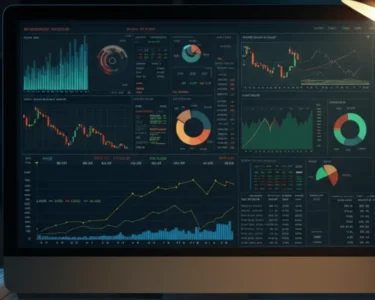In an extraordinary case that captured national attention, a Georgia man found himself facing a staggering $1.4 million speeding ticket. This incident not only highlights the consequences of reckless driving but also raises questions about traffic laws, public safety, and the role of local authorities in enforcing them. Let’s delve into the details of this unusual case and explore the broader implications for drivers everywhere.
The Incident
In the spring of 2023, a Georgia man, whose name has been kept confidential, was pulled over by law enforcement after reportedly exceeding the speed limit by an alarming margin. According to police reports, the individual was traveling at a speed of over 200 miles per hour on a public highway. This extreme act of speeding not only put the driver at risk but also endangered the lives of other motorists and pedestrians.
Upon stopping the vehicle, the officer issued a citation that would shock the public: a speeding ticket amounting to an unprecedented $1.4 million. This astronomical figure quickly went viral, sparking debates on social media and news outlets about the validity and implications of such a fine.
Understanding the Fine
To understand how a speeding ticket could reach such a jaw-dropping amount, it’s essential to explore the factors involved in calculating fines for traffic violations. Speeding tickets can vary significantly based on the severity of the offense, the driver’s history, and state laws.
- State Laws: Georgia, like many states, has a tiered system for speeding fines. For instance, fines can increase based on how far over the speed limit a driver is going. For egregious offenses, such as driving over 100 mph, penalties can escalate quickly.
- Reckless Endangerment: Given that the driver was speeding at an excessive rate, authorities classified the offense as reckless endangerment. This designation can lead to increased penalties, including higher fines and potential jail time.
- Repeat Offender Status: If the individual had a history of traffic violations, this could have contributed to the exorbitant fine. States often impose harsher penalties on repeat offenders to deter reckless behavior.
- Public Safety Concerns: The large fine may also reflect an effort to emphasize the seriousness of such reckless driving. By imposing a significant financial consequence, authorities aim to deter others from engaging in similar dangerous behavior.
Public Reaction
The issuance of the $1.4 million speeding ticket ignited a firestorm of discussion across various platforms. Many people were astonished at the sheer size of the fine. Some argued it was a necessary measure to deter extreme speeding, while others criticized it as excessive and unfeasible.
Social media users took to platforms like Twitter and Facebook, sharing memes and comments, with reactions ranging from humorous disbelief to outrage at what they perceived as government overreach. Some highlighted the irony that while certain criminal offenses could result in lesser fines or sentences, a traffic violation led to a staggering financial penalty.
Legal Challenges
Given the unprecedented nature of the fine, legal experts weighed in on the potential for a court challenge. The driver, facing an enormous financial burden, may have grounds to contest the citation. Possible arguments could include:
- Disproportionate Punishment: Legal representatives might argue that the fine is disproportionate to the crime, especially when compared to penalties for other serious offenses.
- Procedural Errors: If there were any procedural errors during the traffic stop or citation issuance, this could serve as a basis for contesting the ticket.
- Constitutional Rights: The defense may also explore whether the fine infringes upon constitutional rights, particularly regarding excessive fines as outlined in the Eighth Amendment.
The outcome of any legal challenges could set a precedent for how similar cases are handled in the future, potentially influencing traffic laws and fines across the state and nation.
The Broader Implications
The case of the Georgia man and his $1.4 million speeding ticket raises several important questions and implications for society:
1. Traffic Safety and Public Policy
This incident underscores the importance of traffic safety and the role of laws in protecting citizens. Lawmakers may need to reassess existing traffic laws and penalties to ensure they effectively deter reckless driving without being deemed excessive or unreasonable.
2. Public Awareness Campaigns
Public education campaigns could also benefit from this case. By highlighting the dangers of speeding and the potential consequences, authorities can foster greater awareness among drivers about the risks associated with high-speed driving.
3. Technology and Monitoring
Advancements in technology may play a role in future traffic enforcement. With the rise of automated speed cameras and other monitoring systems, authorities might be better equipped to catch speeders before they reach dangerous speeds, potentially reducing the need for extreme fines.
4. Insurance and Economic Impact
For individuals facing such significant fines, the economic impact can be profound. Not only would the driver likely experience increased insurance premiums, but the financial burden of the ticket itself could lead to long-term economic challenges.
Conclusion
The story of the Georgia man and his $1.4 million speeding ticket serves as a cautionary tale about the consequences of reckless driving. While it is essential to hold individuals accountable for their actions, this case also invites critical discussions about the fairness and effectiveness of traffic laws. As society grapples with these issues, it becomes evident that the balance between public safety and individual rights will continue to evolve.
In the end, this bizarre case may lead to changes that could impact traffic enforcement for years to come, ultimately shaping how we view and respond to reckless behavior on our roads. For drivers, it’s a stark reminder of the importance of obeying speed limits and the potential repercussions of ignoring them.



